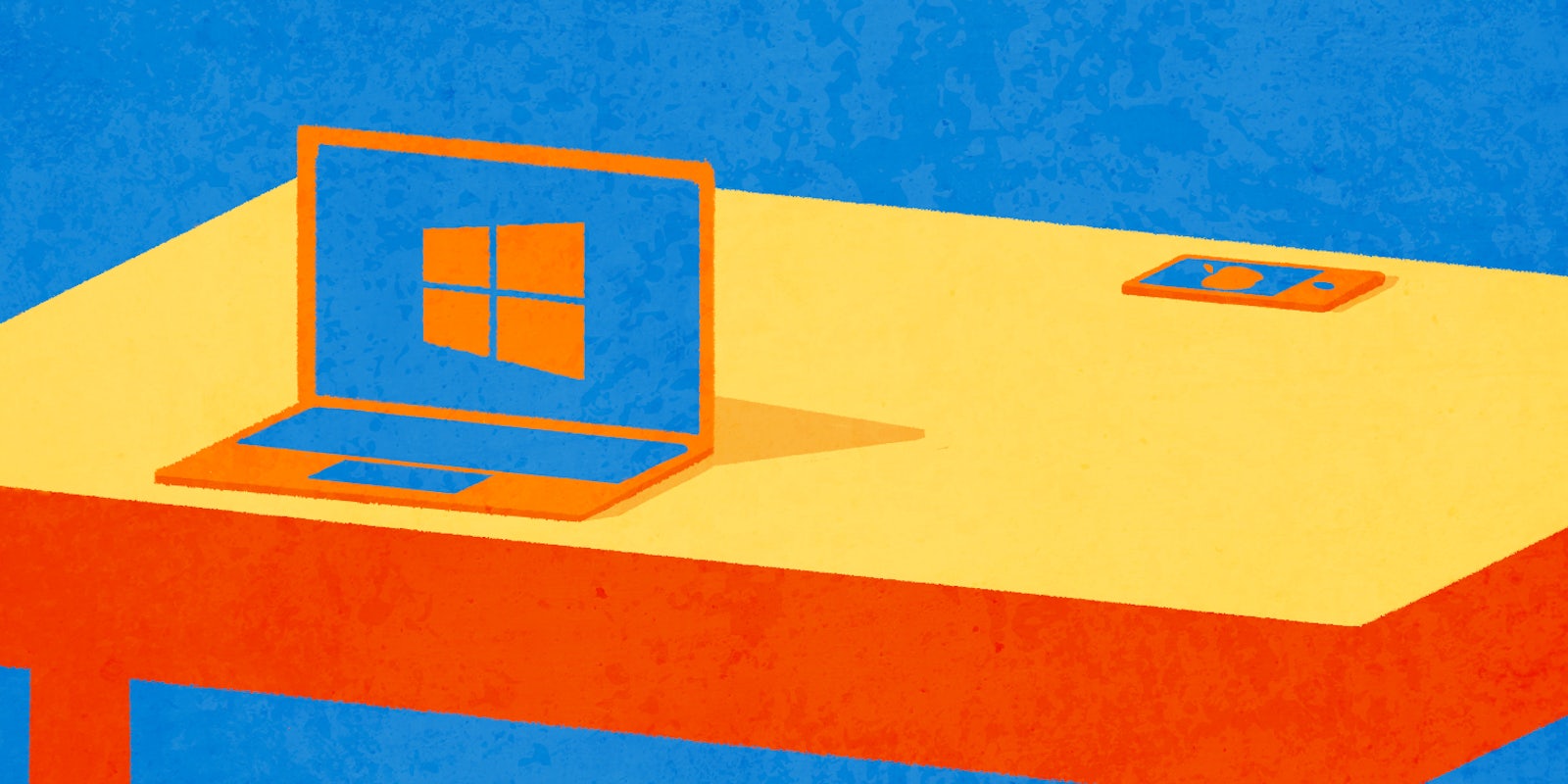A court order forcing Apple to help the FBI access a terrorism suspect’s iPhone has drawn responses from leading tech companies, newspaper editorial boards, and security experts. But one major faction is staying largely silent: the computer and smartphone manufacturers who compete with Apple for business and could be subject to similar orders in the future if the company loses its high-profile case.
Silicon Valley software firms have universally backed Apple in its fight against the Justice Department, which won a ruling Tuesday from a California magistrate judge compelling Apple to design custom software to bypass security features on an iPhone used by one of the San Bernardino shooters. But Apple’s hardware competitors are staying on the sidelines.
“Seeing phones as surveillance devices harms Android more than Apple, because Apple’s security is better than their main competitors.”
Early on Friday, the Daily Dot asked phone manufacturers LG, Samsung, and Sony and computer manufacturers Acer, Asus, Dell, HP, and Lenovo (which also owns phone manufacturer Motorola) whether they agreed with the government or Apple in the unfolding legal battle. Six hours later, only Samsung had responded; a spokeswoman promised to “look into your inquiry” but never followed up to describe the company’s position.
Timothy Edgar, a senior fellow at Brown University’s Watson Institute for International Studies and Public Affairs, said that companies were “naturally reluctant to pick a fight with the FBI in such a high-profile terrorism case,” especially one in which the gruesome facts—an Islamic State-inspired mass shooting at a community center—inspire public sympathy for the government’s argument.
Stephen Vladeck, a law professor at American University, agreed, saying in an email, “Some [companies] might be less confident about the optics here—that the privacy of their customers should supersede even the most compelling government interests.”
Vladeck pointed to another possibility, too: the fear that criticism of the government would jeopardize future contracts with federal agencies, “a problem Apple doesn’t really have because of its market share.”
Edgar, who formerly served as the senior legal adviser in the Office of the Director of National Intelligence and the director of privacy and civil liberties at the White House, also argued that Apple had overstated its position by claiming that the government’s request was overly burdensome.
“The FBI is saying that if Apple makes a breakable phone, they can force Apple to help them break it,” he said in an email. “Companies may think, correctly, that Apple is at least partly responsible for being in this predicament.”
Apple’s competitors in the smartphone space may also be avoiding the debate because their phones, which run Google’s Android operating system, lack the robust security measures that Apple builds into iOS.
Apple has total control over the process of designing the iPhone and its software, so it can implement full-disk encryption, a form of protection—first added to the iPhone 5s—that even it cannot break. Because Google needs to maintain its relationships with phone manufacturers, and because full-disk encryption can slow down a phone’s performance, it left that feature optional to avoid upsetting its partners and their customers.
“The more attention that is paid to smartphone security,” said Phillip Rogaway, a professor of computer science at the University of California, Davis, “the more people will start to understand what these devices really are: extraordinary instruments of surveillance.”
That’s a problem for every company involved in selling smartphones to consumers, he said, but it’s especially bad for companies whose hardware lacks the iPhone’s unique measures. “Seeing phones as surveillance devices harms Android more than Apple,” he wrote in an email, “because Apple’s security is better than their main competitors.”
The furor over the iPhone court order plays into a larger debate over whether tech companies should design their encryption so that they can bypass it for government investigators.
FBI Director James Comey has led the fight for guaranteed-access schemes that critics call “backdoors,” backed by law-enforcement and intelligence officials like Manhattan District Attorney Cyrus Vance, Jr. They argue that, by designing technology like full-disk encryption, tech companies are helping terrorists “go dark” by hiding their planning.
Apple CEO Tim Cook, who promised to fight Tuesday’s order in a defiant open letter, has emerged as as leader of the opposing faction, which includes security engineers, privacy advocates, and some former national-security officials. They warn that a deliberate vulnerability accessible to one party is really a vulnerability accessible to anyone smart enough to find it—including rogue hackers and foreign spy agencies—and that the FBI and other agencies are well-equipped to get the data they need without compromising encryption.
Congress is paying close attention to the encryption debate, too. Lawmakers are planning legislation, hearings, and a commission to address the issue.
Experts believe that China is closely watching how the U.S. resolves the debate over backdoor mandates. Beijing recently adopted a draconian counterterrorism law that could give it the authority to demand backdoors, but it would likely feel more comfortable exerting such authority if it could point to an American precedent.
Illustration via Max Fleishman


